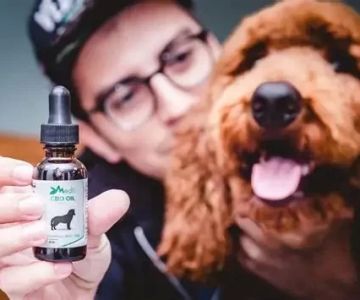- Spring Pet Care - Allergies, Parasites, and Outdoor Safety
- Summer Pet Care - Heat Protection and Hydration Essentials
- Fall Pet Care - Preparing for Seasonal Transitions
- Winter Pet Care - Cold Weather Risks and Comfort
- Real-Life Seasonal Cases - Stories That Teach Awareness
- Hidden Brook Veterinary Support - Year-Round Professional Guidance
1. Spring Pet Care - Allergies, Parasites, and Outdoor Safety
As temperatures rise, spring brings fresh air, blooming flowers, and new risks for pets. Seasonal allergies may cause sneezing, itchy skin, and watery eyes. Fleas, ticks, and heartworm-carrying mosquitoes become active, making parasite prevention crucial. A well-known case in the Midwest involved a dog that developed severe Lyme disease after missed spring tick prevention. This illustrates why consistent parasite control is a must during spring.
Ensuring your pet’s safety also means checking gardens for toxic plants and monitoring increased outdoor activity to prevent injuries.
2. Summer Pet Care - Heat Protection and Hydration Essentials
Summer heat can be dangerous, and heatstroke is one of the most life-threatening seasonal risks. Pets should have constant access to shade, fresh water, and should avoid exercise during peak heat. Pavement burns are another common issue—if the ground is too hot for your hand, it’s too hot for your pet’s paws. Social media often highlights heartbreaking cases of pets left in hot cars, reinforcing that even a few minutes can be fatal.
At Hidden Brook Veterinary, we recommend cooling mats, pet-safe sunscreens, and hydration strategies tailored to your pet’s needs for a safe summer season.
3. Fall Pet Care - Preparing for Seasonal Transitions
Fall signals cooler weather and the return of seasonal hazards like mushrooms, mold, and ticks that remain active until the first frost. Shorter days can affect your pet’s exercise routine, so adjusting walks to safe, well-lit areas is important. Seasonal shedding in double-coated breeds also peaks in the fall, requiring more frequent grooming to avoid matting and skin issues.
Veterinary checkups in fall ensure pets are ready for the colder months ahead, with updates on vaccinations and parasite control.
4. Winter Pet Care - Cold Weather Risks and Comfort
Winter poses risks of frostbite, hypothermia, and exposure to harmful chemicals like antifreeze. Small breeds, older pets, and those with thin coats need extra protection, such as sweaters or jackets during outdoor walks. Ice-melting salts can irritate paws, so rinsing feet after walks is recommended. A popular viral story highlighted a senior dog rescued after suffering frostbite from being left outside too long, showing how quickly cold can become dangerous.
Indoor enrichment activities, warm bedding, and balanced nutrition help pets stay healthy and comfortable all winter long.
5. Real-Life Seasonal Cases - Stories That Teach Awareness
From summer heatstroke emergencies to winter frostbite rescues, real-life cases remind us why seasonal care matters. In one instance, a family cat developed severe allergies each spring due to pollen exposure until a veterinarian prescribed supportive care. Another dog avoided recurring hot spots once its owner adopted better summer grooming and hydration practices. These cases show that proactive seasonal care saves lives and improves quality of life.
6. Hidden Brook Veterinary Support - Year-Round Professional Guidance
At Hidden Brook Veterinary, we provide vet-approved insights tailored to every season. Whether it’s parasite prevention in spring, heat safety in summer, or cold weather protection in winter, our clinic offers trusted products, services, and guidance to keep pets safe year-round. With seasonal pet care tips backed by veterinary expertise, owners can feel confident in protecting their furry companions through every season.












